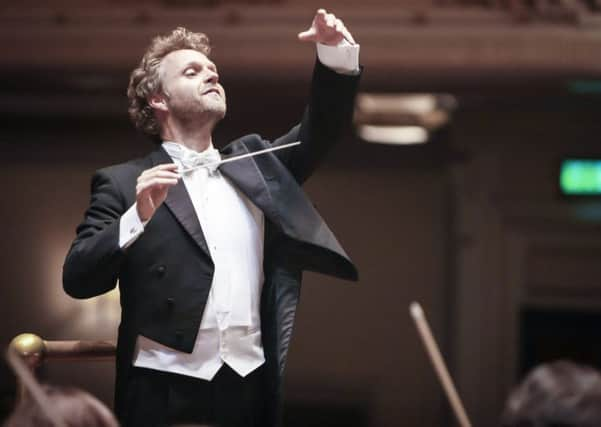2018: The Year in Classical Music


A searing Mahler Five opened his first full season in October, our critic on the night describing the RSNO as “energised by a new sense of direction.” Every appearance by Søndergård since has produced consistently red hot results: a blissful Poulenc Gloria, a glitteringly tasteful Saint-Saëns’ Carnival of the Animals and, most recently, standing in for an indisposed Krzysztof Penderecki, a refreshingly clean-spirited Tchaikovsky Five. The connection between the orchestra and this conductor is thrilling to experience.
Over at the BBC SSO, the connection between another Dane, principal conductor Thomas Dausgaard, and his players remains less convincing. He’s been with the orchestra for just over two years now, and the magic we’d all hoped for is simply not happening. Sure, there have been moments where his inventive programming has spectacularly hit the button, such as September’s rare performance of Rued Langaard’s spatial extravaganza Music of the Spheres, which had the audience submerged in a hypnotic wash of orchestral surround sound in Glasgow Cathedral. But too often Dausgaard’s flamboyant podium style causes visible apprehension in his orchestra. The chemistry simply isn’t there. Having the right man on the podium really does make all the difference.
Advertisement
Hide AdThe presence of a principal conductor has never been a must for the Scottish Chamber Orchestra, but it was interesting to have an unexpected foretaste of the incoming Maxim Emelyanychev (the 30-year-old Russian formally takes up post in September 2019) when he stood in for an indisposed Bernard Labadie to conduct Haydn’s The Seasons, making an impressive impact in the process.
But there’s a worry facing all our orchestras: the future. This year saw various scare stories about the spiraling decline in instrumental tuition in Scottish schools. The nub of the issue has been the scattergun introduction of lesson charges across the country and the impact on the numbers now learning.
The past six years – a period equivalent to a whole generation of secondary school pupils – have witnessed a startling erosion, with little or no effective remedial acknowledgement of the problem. Reports a few months ago suggested that pupils taking lessons in West Lothian had dropped from 1,800 last year to 360 this year after fees were introduced. East Lothian had experienced a drop of a third. And these are not the highest charging local authorities.
What is being done about it? Holyrood’s education committee recently heard evidence from leaders in music education and seemed to be lending a sympathetic ear. But as Jeffrey Sharkey, principal of the Royal Conservatoire of Scotland, said in an interview with The Scotsman in September, action is needed now.
He pointed to a current dearth of Scottish string players studying at the RCS. When he sought some out to play at a recent visit by education secretary John Swinney, he could find only one. The RCS is dependent on the quality of school instrumental tuition to determine the calibre of its own intake. The national orchestras, in turn, depend on the RCS to train them to an acceptable standard. If that chain is broken, what future for our orchestras?
Elsewhere in the classical firmament, Scottish Opera struck summer gold with the first of its promised opera projects in unusual venues. In July it presented Leoncavallo’s Pagliacci in a giant tent in a Paisley park, ambitiously named Paisley Opera House for the three-day run. The fairground atmosphere, with face-painting, Punch and Judy shows and donkey rides was a winner in every sense.
Advertisement
Hide AdAmong the festivals this year, a centrepiece of the Cumnock Tryst was the world premiere of Sir James MacMillan’s All the Hills and Vales Along, a truly moving setting of words by Charles Hamilton Sorley, who died on the Western Front in 1915. Sung by the local Festival Chorus, with the Dalmellington Band, the Edinburgh Quartet and the international tenor Ian Bostridge, the bravado of the event was reminiscent of the halcyon days of Peter Maxwell Davies’ St Magnus Festival.
As for the Edinburgh International Festival, while there was much to celebrate in such knock-out performances as Simon Rattle’s Mahler Nine with the LSO, and Edward Gardner’s Haydn’s Creation with the SCO and Christopher Bell’s world-class National Youth Choir of Scotland, there was some sadness in acknowledging Bell’s swansong as director of the Edinburgh Festival Chorus, which he has single-handedly revolutionised. 2018 also marked Bell’s departure from the RSNO Junior Chorus, but at least we can take consolation in the fact he is remaining – despite his major American commitments – with his national youth choirs. As a result, there’s a bright future ahead for choral singing in Scotland. - Ken Walton